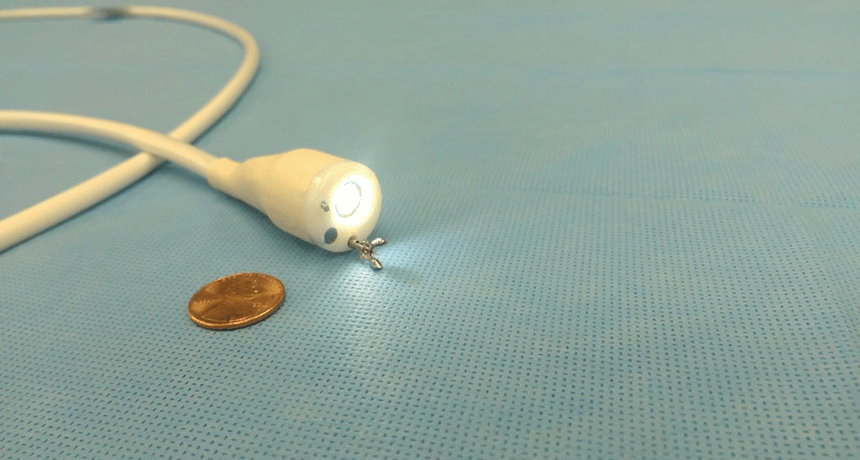Questions for ‘Robots may soon actively crawl through your gut’

This magnetic endoscope has a light, camera and tiny robotic arm so it can perform tasks inside the body, such as cut or grip something.
Vanderbilt University Science and Technology of Robotics in Medicine Lab